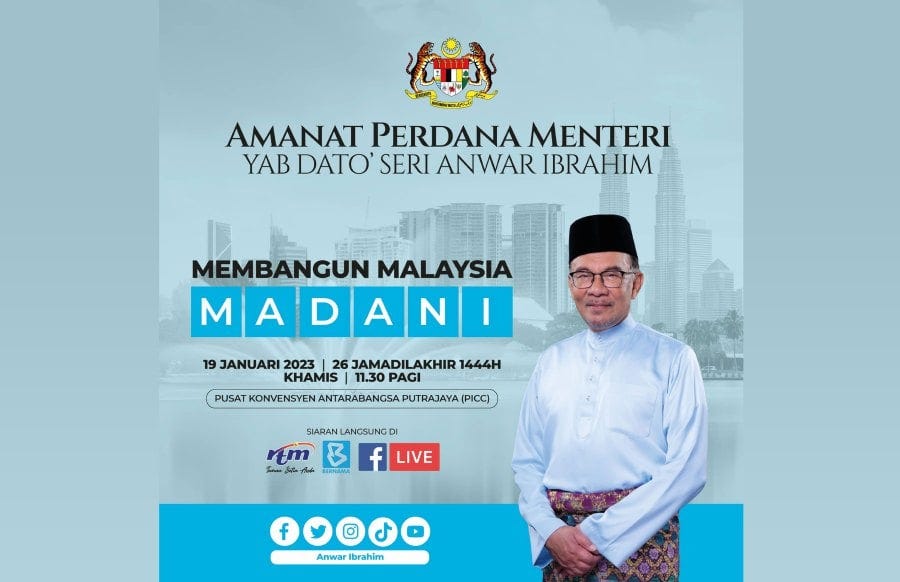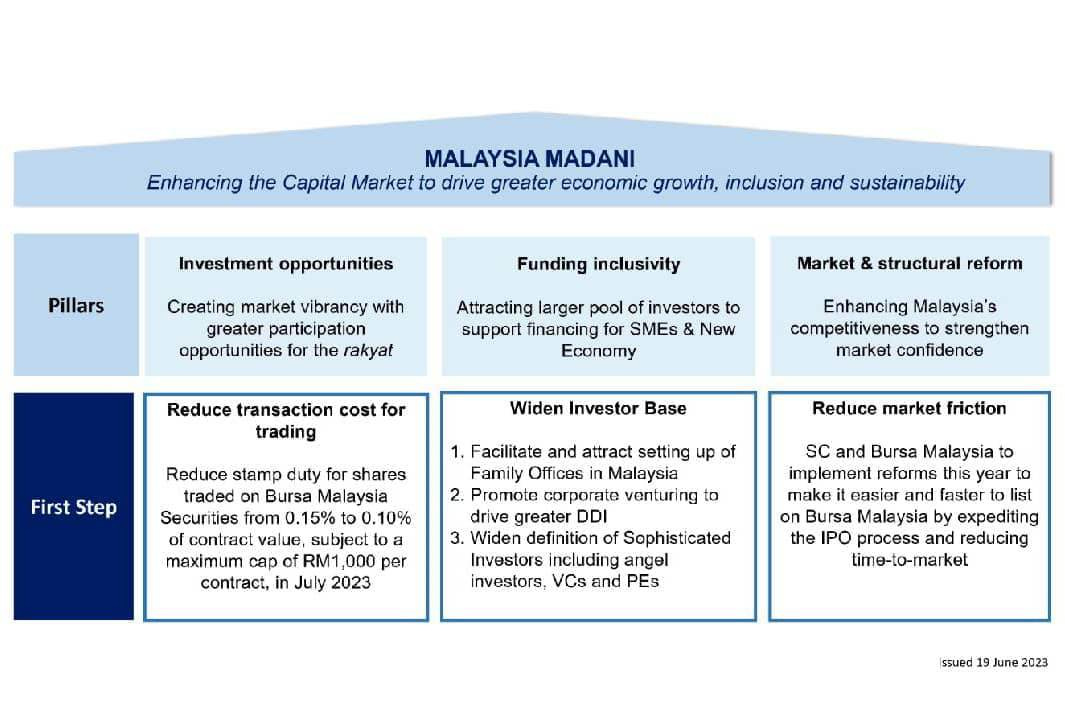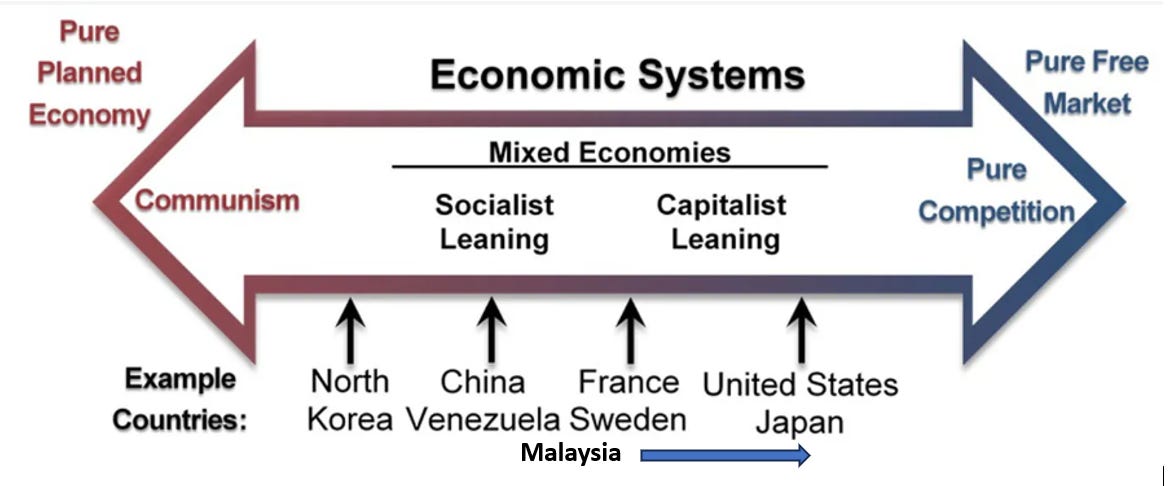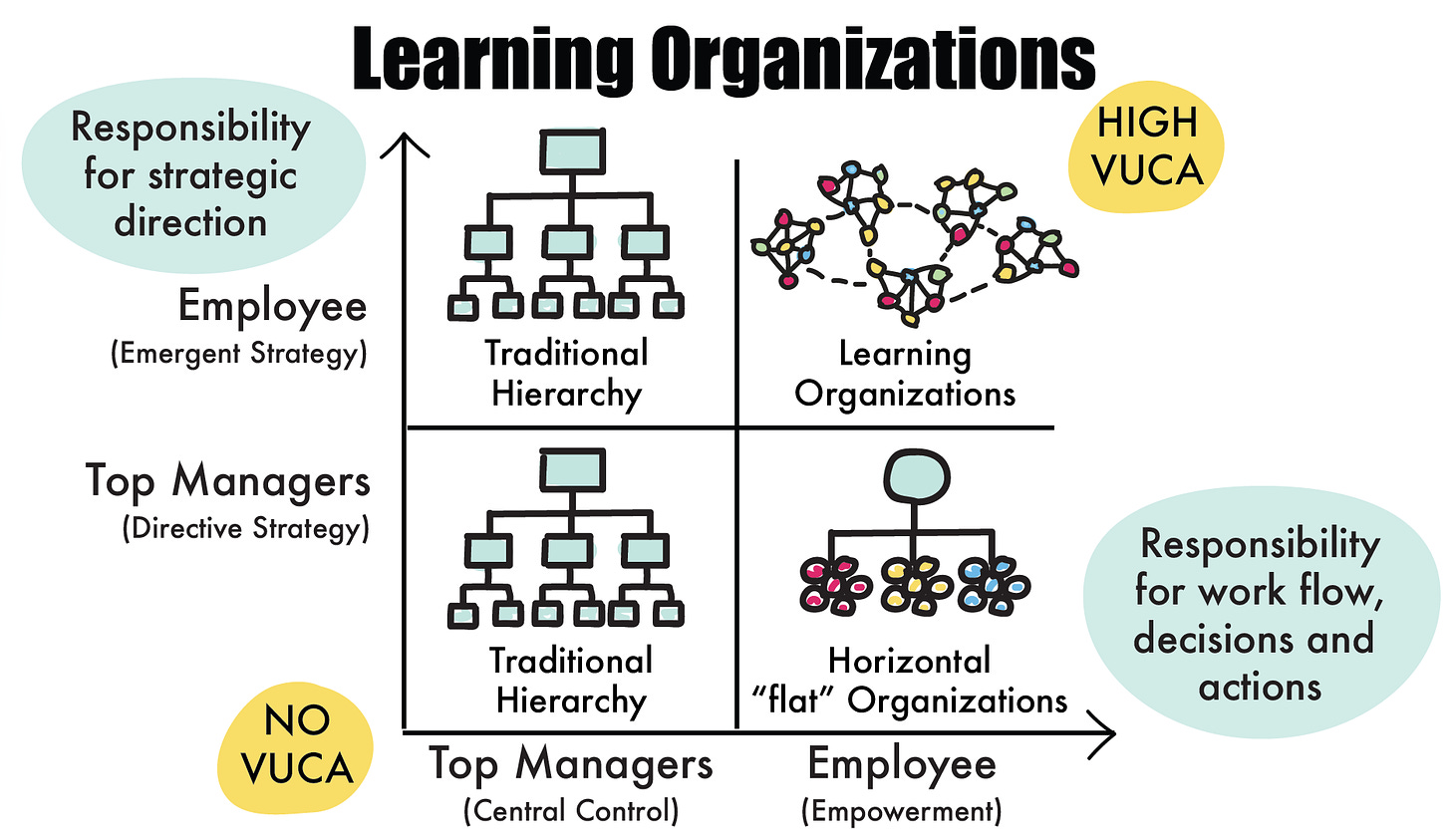Islam and the implementation of Malaysia Madani
Looking at the theological basis of Madani economics
It was very surprising when prime minister Anwar Ibrahim launched Malaysia Madani, earlier this year, a comprehensive theology/philosophy had not been developed. Consultants and PR firms are now encapsulating the philosophy of Madani into strategies and action points for eventual implementation. From that format, Malaysia Madani can be applied to both economic and social policies.
Consultancies are producing the same old same old. Headings are new and body is a cut and paste job.
Madani is deep enough to become a separate and stand-alone economic paradigm. As such, Malaysia Madani would radically change the nature of the economy in a way it would be Islamic and ‘Reformasi’ at the same time. It would unify the paradox of Islam and reform.
Malaysia Madani would radically change the nature of the economy in a way it would be Islamic and ‘Reformasi’ at the same time
Malaysia Madani is based upon six major themes; sustainability, prosperity, innovation, respect, trust, and compassion. All of these principles are prominent within the Tawhid, the belief in oneness with God. Tawhid implies both the mission and morality of humankind in both social and spiritual contexts.
Al-iman is deepened by al-ilm[i], which is the responsibility of all Muslims to seek[ii] in order to fulfill and perform al-amal. Knowledge (spiritual, wisdom and scientific) is the foundation of all acts of al-amal which would be futile and unproductive without the search for further knowledge[iii] to enhance the wellbeing of society[iv]. Thus Madani should place great importance on scientific discovery, knowledge and wisdom to develop civilization[v]. Al-iman and al-ilm manifested through al-amal are the basis of the advancement of civilization for the benefit of humankind. This is undertaken under the principle of ad-din, mentioned above, which is referred to as ibadah.
The rest of this article will examine the Islamic basis of Madani and the relevance to economic and social policy.
The foundations of Madani
To understand Madani, we must deconstruct the concept, to see the individual elements, so we can apply it to economic and social policy making.
There are three basic assumptions behind the philosophy of Madani. This indicates the Madani mission, and type of society envisaged under Madani.
The nature of humankind: Humankind has both the potential to rise to great spiritual heights and also disintegrate into total immorality. Humankind’s ability to act rightly or wrongly is a matter of moral choice. Under the Islamic viewpoint, humankind’s purpose on earth to carry out ibadah (relates man to Allah through spiritual acts)[vi][vii] and follow God’s will with total devotion, according to his natural disposition (fitrah); where everything fits into the divine pattern under the laws of Allah[viii]. Submission to the laws of Allah brings harmony to people, however, humans were created with many weaknesses[ix], forgetfulness[x], greed for material comforts and power[xi], are capable of oppressiveness and ignorance[xii], are rash and impatient[xiii], stringy and miserably[xiv], ungrateful[xv], quarrelsome[xvi], ruthless[xvii][xviii], and full of self-interest[xix], which can easily lead people astray.
The amoral society: General society has become amoral and lapsed in faith, believing that truth and reality is based on what can be touched, smelled, seen, heard and tasted. This has led to a society that has become materialistic and ritualistic, while less spiritual. This absence of spirituality is leading business into immoral activities such as stealing, lying, fraud and deceit, making people believe that they cannot succeed without pursuing the same practices[xx].
The above is where respect, trust, and compassion comes into the Madani equation
Malaysia’s economic malaise: Malaysia is currently undergoing a number of economic woes. Public debt is now RM 1.08 trillion, or 60.4 percent of GDP. RM 45.94 billion is required to service public debt every-year, and this is rising as budgets will continue to carry deficits. Much budget spending is lost in mis-directed spending, leakage, and corruption. The Ringgit is in a freefall, and putting pressure on Bank Negara Malaysia to raise interest rates once again. Youth unemployment stands at 11.76 percent. Income inequality keeps rising, while poverty is on the increase. In addition, Malaysia faces a bloated public service, lower productivity improvements than its neighbors, where government linked companies dominate the econ-scape. The education sector is failing to general society’s knowledge, useful research, and foster creativity and innovation on society.
Madani aspires towards a society of high empathy, compassion, and self-spirituality. Achieving this creates al-falah, which means that man has lived up to God’s trust placed upon him, through performing his ibadah, while obeying all the laws of the syar’iah. This is where man has overcome his weaknesses in the service of God, through righteous deeds (amal), in his obligation of fard kifayah. Man has reached the state of amanah, fulfilling the trust God has put in him[xxi]. Economy activities must be based on working within al-amal and ibadah, with the overall objective of achieving al-falah for society, as a whole and each individual within it. This is based upon a foundation of al-iman and al-ilm, within a civilization based upon a tawhid philosophy, so that employees have the opportunity to achieve taqwa and avoid straying towards the state of al-fasad.
The building blocks of Tawhid are the concepts of al-iman (belief), al-ilm (knowledge) and al-amal (pious acts and efforts). Al-iman is the belief in the existence of one God and Creator, with a commitment to His teachings and revelations, revealed through the Al-Qur’an, and Prophets, through the Hadĭths and Sunnah (What the Prophet Muhammad said, did, agreed or disagreed to). Our faith in Allah is reflected in our daily behavour, influenced by our moral system formed and contained within us. It is our inner self;
“Faith is not expectations and not outward ornamentations, but implanted in the heart and realized through actions.”
(Ibn Najjar & Dailami)
This is the very basis of the Madani work ethic, which part of humankind’s essential nature (fitrah), that should be installed upon members of the Malaysian community. This relates humankind to everything an individual does, including spiritual duties, thoughts, actions and deeds to other people[xxii].
These are the fundamentals of the Madani philosophy.
Madani should advocate a free market
Madani should espouse a market economy with freedom of the individual to operate a business with minimal outside interference;
“He who brings goods to the market is blessed with bounty, he who withholds them is cursed.”
(Ibn Majah & Al Hakim)
A market mechanism is urged with free-flowing knowledge without exploitation by middlemen;
“Do not chase after those who are going to the market before they reach the place.”
(Al-Bukhari & Muslim)
Islam also prohibits price manipulation;
“Anyone who withholds goods until the price rises is a sinner.”
(Muslim).
Free trade is a major factor in the enhancement of living standards of the general community, subject to some constraints on business in the interests of the wider community. Thus, a Madani economic approach should dismantle monopolies, most government linked companies or GLCs, and restrictive licensing.
Malaysia must be prepared to move along the economic continuum
“There is no monopoly except by sinful persons.”
(Muslim)
The obligation to improve the Muslim Ummah, and in the case of Madani, the whole Malaysian community, falls under fard kifayah[xxiii], where undertaking business are the principle methods[xxiv] of improving the economy and community;
“Be involved in business as nine out of ten sources of income lie in business”
(Ihya)
Thus, the economy must become based upon enterprise, creativity, and innovation, rather than through state actors.
A transformative business culture
Business organizations are founded and operated on the principle of al-ta’awun (mutual assistance and cooperation) among members of a society for both their mutual benefit and that of a society as a whole[xxv]. Corporate vision, mission and objectives in business should incorporate a wide notion of success. This is al-falah. Islam puts very little restriction upon the scale of worldly success[xxvi], with consideration to the poor and suffering[xxvii]. success must also serve the legitimate needs of the ummah[xxviii]. This is in great contrast to the singular objective of profit maximization in contemporary business thinking[xxix].
Consequently, financial profits should not be the sole determinant of the success of business. The role they play in society is very important.
Equality
Under Madani, the government should build the nation’s foundations upon the basic principle of human rights in its administration based on the concept of adab. Adab is based on the existence and recognition of God, and recognition of his commands and laws (syar’iah). Within a national context, adab persuades people to do good and avoid evil (al-fasad), in accordance with the nature of humankind (fitrah), and nature of his action (al-amal). Adab comprises four major responsibilities, 1. responsibility to God, 2. responsibility to oneself, 3. responsibility to society and other human beings, and 4. responsibility to the universe and other creatures[xxx].
Sustainability
Humankind has a great responsibility towards the environment, and must care for the Earth so the next generation can also enjoy it[xxxi]. Humankind does not own the Earths resources, as they only hold them in trust[xxxii]. Resources should never be wasted[xxxiii]. This is an important aspect of Amanah.
Madani must have a very strong emphasis on a clean, fertile, and pollution free environment.
“The fertile land produces abundantly by the Will of its Lord, whereas the infertile land hardly produces anything. This is how We vary ˹Our˺ lessons to those who are thankful.”
Al Arif 7:58
This implies a major change in the way agriculture must be undertaken.
Prosperity
Islam encourages the pursuit of prosperity. There is nothing wrong with pursuing high incomes and wealth (2:164). However, the distribution of income must be fair throughout society (59.7). Business ventures should be mutually beneficial to all parties (4.29). Interest on loans is forbidden, as borrowers can potentially be over-burdened by loan providers (4.161).
What a Madani economy might look like
Some of the important aspects of a Madani economy are listed below. These attributes actually represent a massive departure from the type of economy Malaysia is today.
· A Madani economy would essentially be a free market, with minimal government interference. There would be no artificial monopolies and government should compete with private firms through GLCs.
· There would essential be freedom of entry and exit into industries and markets by enterprises. One company shouldn’t have artificial advantages over other companies.
· All tenders accepted by government should be based upon the merits of tenders.
· Meritocracy, knowledge, wisdom, and ethics should be the basis of who occupies important positions in the government administration.
· Business is based upon the rule of law (2:282).
· Business should be ethics based (28.77)
· Business and manufacturing should be sustainable: This means not wasteful, paying for public externalities, and using renewable resources (7.31).
· Business should be based upon knowledge and innovation, rather than rent-seeking activities (56: 63-64).
· Entrepreneurship is a noble profession and should be encouraged (14: 32-34, 35:32).
· A Madani society should be an egalitarian society (59.7).
· A Madani society should be a knowledge-based society (17:36).
· A Madani society should have a welfare safety net (17:26)
· A Madani society should be a consultative society. This would infer the need for elections for local government (3:159, 42:38).
There would be a need to shift towards ‘learning organizations’ in bureaucracy.
Developing shura inside organizations will require massive cultural change. This will invoke much more creativity and egalitarianism. Are the nation’s leaders able to accept this?
Somehow I feel this is not going to happen.
Subscribe Below:
[i] Al-Qur’an (17:36)
[ii] Al-Qur’an (92:4), (29:69).
[iii] Hassan, M., A., (1992), op. cit., P. 24.
[iv] Al-Qur’an (31:20)
[v] Al-Qur’an (35:28)
[vii] Al-Qur’an (51:56)
[viii]Al-Qur’an (30:30)
[ix] Al-Qur’an (4:28))
[x] Al-Qur’an (20:115)
[xi] Al-Qur’an (102:1-2)
[xii] Al-Qur’an (33:72)
[xiii] Al-Qur’an (17:11)
[xiv] Al-Qur’an (17:100)
[xv] Al-Qur’an (17:67)
[xvi] Al-Qur’an (18:54)
[xvii] Al-Qur’an (70:19-20)
[xix] Al-Qur’an (4:128)
[xx] Beekum, R., I., (1996), Islamic Business Ethics, Herndon, VA., International Institute of Islamic Thought.
[xxi] Al-Qur’an (33:72)
[xxii] Al-Qur’an (2:21)
[xxiii] Al-Qur’an (22:77)
[xxiv] Al-Qur’an (2:275)
[xxv] Ismail, A., H., (1992), ‘Bank Islam Malaysia Bhd.: Principals and Operations’, in Sheikh Abod, S., G., Syed Agil, S., O., and Ghazali, A., (Eds.), An Introduction to Islamic Finance, Kuala Lumpur, Quill Publishers, P. 258.
[xxvi] Al-Qur’an (2:198)
[xxvii] Al-Qur’an (25:67)
[xxviii] Al-Qur’an (3:1-2), (4:125)
[xxix] Al-Qur’an (6:132), (16:97), (16:93)
[xxx] Lapidus, M., (1984), ‘The Place of Adab in South Asian Islam’, in Metcalf, B., D., (Ed.), Moral Conduct and Authority, Berkeley, Los Angeles, University of California Press, P. 39.
[xxxi] Al-Qur’an (33:72)
[xxxii] Al-Qur’an (45:12)
[xxxiii] Al-Qur’an (7:31) (10:14)








If Malaysia cannot plan a progressive secular economy, what makes AI think that an Islam oriented economy will succeed? It all looks good on paper(superficially) but the devil is in the details. Muslims have not shown great dexterity and planning skills for the past 60 years, except for the skills of kleptocracy, korupsi and abuse of power. Malays have also not shown great depth of understanding of Islam(ask syed Akbar Ali). AI has also not clearly defined the roles of non Muslims in such a society. Don't forget, it is the non muslims who provide the country with tax receipts. How do they fit in. From the charts, it looks like they have no role. It is all by muslims, for muslims. Up till now, his planners have not produced anything concrete. These charts are just charts. They do not become reality unless and until the govt plans and puts into action an algorithm. This looks like the MB of Kedah who donned an admiral's uniform while performing an official function. All show and hype with no substance. This has been the character of a Malay centric govt. AI with his Islam Madani will be no different.
Counting on cultural change in Malaysia, or any country for that matter, is foolish. Anything that depends on changing the culture -- really changing it, not just metaphorically -- cannot be directed by plans or agencies. Culture change is organic, it's impossible to direct as a function of government policy.
Also, rationalizing Islamic principles with financial practices is something that can only be done by those who are unlikely to hold any authority in the current government. While the PM gave JAKIM the mandate to chime in on policy we should all keep in mind, as I think you mentioned in this column a week or so ago, that JAKIM has little knowledge or expertise in anything except religion. A religious degree in Islamic studies is practically worthless, let's be honest. Expecting big shots in JAKIM to know anything about economics or finance is expecting too much.